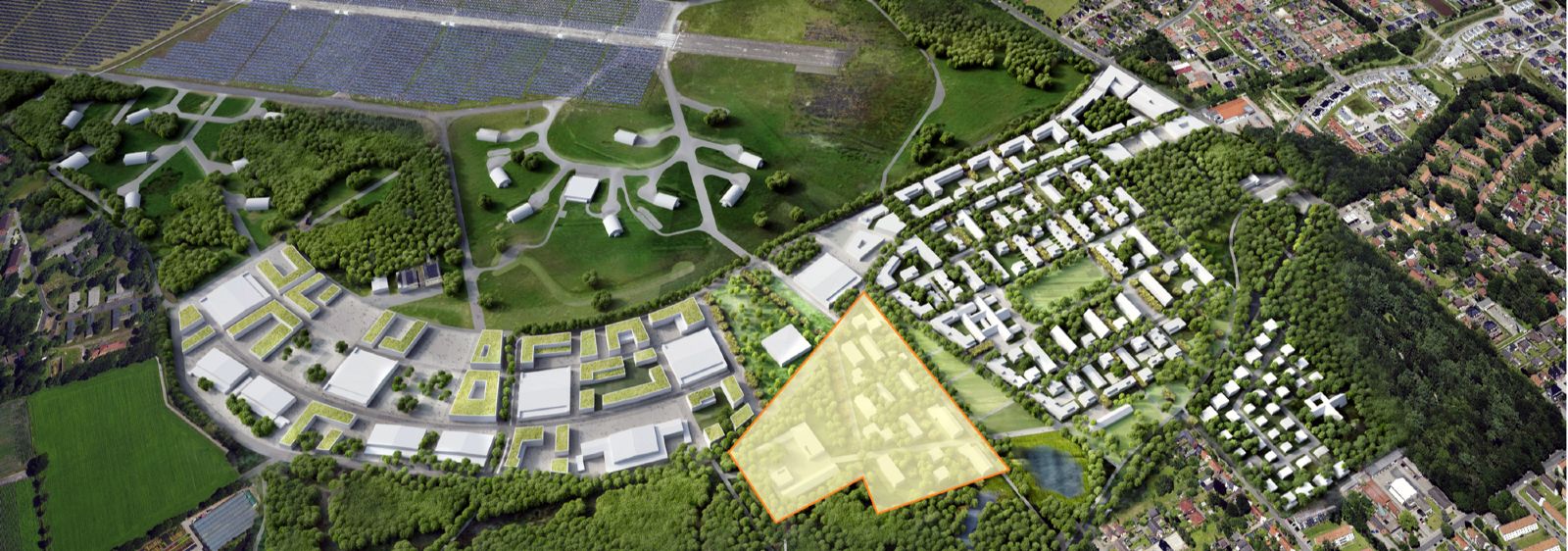
Climate-neutral district
From an air base to residential district with an innovative supply concept
The redesign of the formerly military-used area offers the town of Oldenburg a unique opportunity to develop a concept for residential districts of tomorrow. Over the next few years, 950 residential units and additional commercial space will be built across the entire area of the former air base. Roughly 110 residential units consisting of existing and new buildings are planned for a 3.9-hectare part of the site. The quarter built on this section will serve as a “living” laboratory for smart city technologies. In the next two years, the project partners are planning the “Energy Efficient Neighbourhood” with the participation of the public. Desired is both a thorough mixture of terraced housing and apartment buildings as well as owner-occupied and rental accommodation. The buildings are scheduled to be occupied from about the end of 2020. This will be followed by a roughly two-year evaluation of the energy efficiency district concepts. “One of the core aspects of the project is concerned with how the local energy community for such a neighbourhood can be designed in social and economic terms in order for it to be attractive and economically viable for residents, energy producers and service providers in the long term,” explains Professor Sebastian Lehnhoff from the OFFIS executive board.
Energy exchange among neighbours
The energy requirement is set to be covered for the most part by locally generated energy. To this end, the planners are developing a public supply network that supports the coupling of electricity, heating/cooling and mobility. The ensuing district concept, also known as the “Energy Efficient Neighbourhoods” concept, combines a network of producers and loads that are in close proximity to one another. Their surplus energy will be converted into other forms of energy and stored or provided directly. This enables the energy to be used immediately by neighbouring loads. The idea is to increase the energy efficiency by avoiding “waste energy” and by increasing the local consumption of “neighbourly-generated” energy. In addition to sector coupling, an open, secure and privacy-compliant digital platform is being developed that will allow the public to automate local energy exchanges.
Community portal
The digital service platform for intelligent load and procurement management is planned as a digital twin of the physical platform. It provides the necessary functionality required, for example, for forming and operating local energy co-operatives or other co-operation models at the district level in cooperation with energy service providers. Residents will be involved as energy producers and consumers via a community portal and will be able to influence the conception and formation of local energy cooperatives. They will therefore be involved in the derived business models for service providers for constructing and operating the “Energy Efficient Neighbourhood”.
Solar Building/Energy-Efficient City support initiative
The “ENaQ - Fliegerhorst Oldenburg Energy Efficient Neighbourhood” is one of six flagship projects in the Solar Building/Energy-Efficient City support initiative, which was launched in 2016 by the German Federal Ministry for Economic Affairs and Energy and the German Federal Ministry for Education and Research. In addition to the project coordinator, the town of Oldenburg and the scientific management provided by the OFFIS Institute for Information Technology, the project consortium consists of 20 other partners from science and industry.

